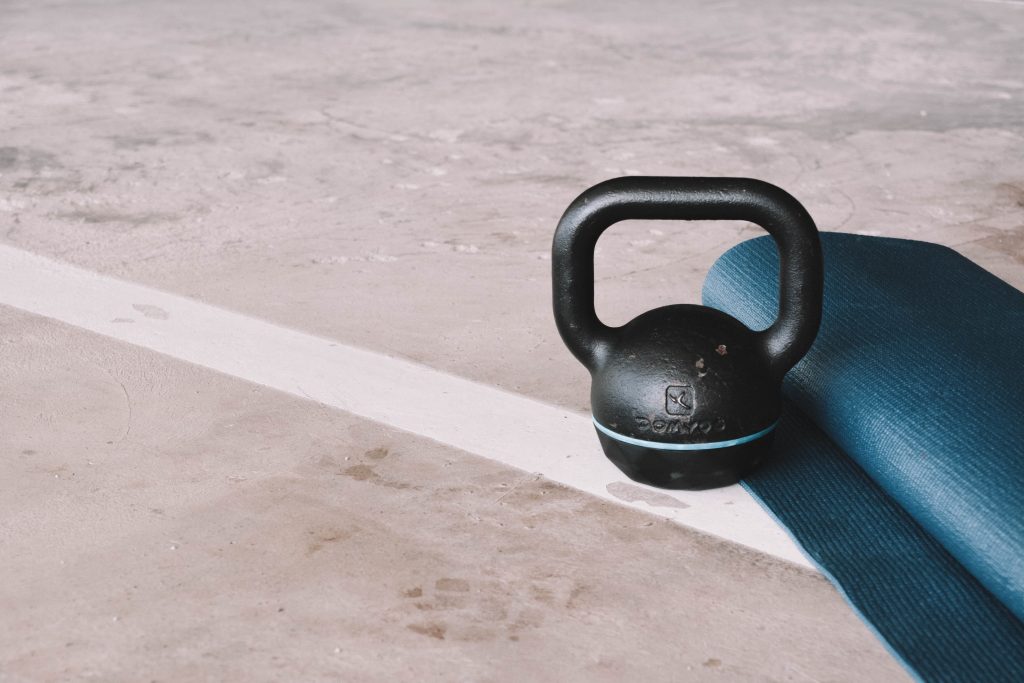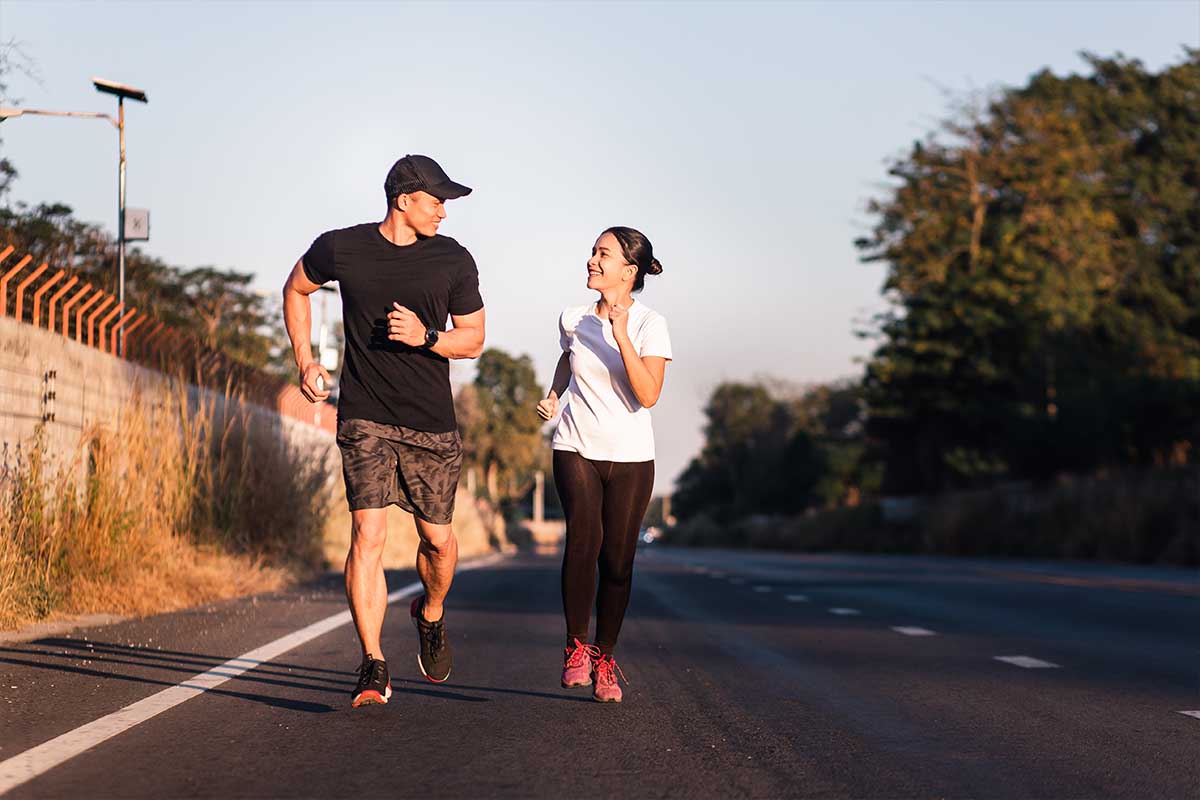Advertisement
Fuel for Every Athlete
On a special diet? Getting older? Here’s what you need to know about sports nutrition.

Fueling your body with the right nutrition is critical for peak athletic performance. But what if you’re vegan? Or gluten intolerant? Or hitting some major age milestones? Read on to explore the foods and supplements you need to know for your unique needs.
Advertisement
Fuel for everybody and every body
Most athletes need three main nutrients:
- protein for post-workout recovery and building muscle
- carbohydrates for general energy, especially when doing short, high-intensity workouts
- fats for absorbing nutrients and fueling low-intensity exercise
Every day, aim to eat 6 to 10 grams of carbs per kilogram of body weight (2.7 to 4.5 grams per pound) and about 1.6 grams of protein per kilogram of body weight (0.73 grams per pound).
Healthy fats should provide about 30 percent of your daily calories. That’s approximately 67 grams of fat a day if you’re eating 2,000 calories daily.
Exactly how you satisfy these general requirements—and the supplements you need to support your fitness goals—shifts depending on what you eat (or don’t eat).
Advertisement
Plant-based athletes
The number of North Americans who eat a plant-based diet—including many Olympians and pro athletes—is on the rise. Perhaps that’s because plant-based diets reduce exercise-induced inflammation, improve performance (including endurance), and speed recovery.
Plant-based athletes often worry about getting enough protein. But the Academy of Nutrition and Dietetics notes that this concern is unfounded since plant-based diets “typically meet or exceed recommended protein intakes when caloric intakes are adequate.”
However, there are a few foods to consider if you want to be the strongest vegan on the block.
Advertisement
Foods and supplements for plant-based athletes
Nuts and seeds
“They’re a great source of healthy protein and essential fatty acids,” says registered dietitian Bansari Acharya. She recommends flax, chia, and hemp for their omega-3 fat content, which some plant-based athletes may be low on.
Iron
Plant-based athletes eat as much iron as their meat-loving peers, but their blood levels of iron tend to be lower. Add extra iron-rich foods to your diet, such as lentils, chickpeas, and kale, and consider taking an iron supplement if you’re deficient.
Vitamin B12
B12 is critical for general health, as well as energy production during exercise. It’s primarily found in animal products, so you’ll want a supplement.
Creatine
The amino acid creatine boosts muscle strength and growth, as well as athletic endurance. It’s only found in animal products, but vegan-friendly supplements are available.
Gluten-free athletes
Most grains—the usual go-to for the carbohydrates you need to fuel your workout—contain gluten.
Lisa Richards, a nutritionist and the author of <The Candida Diet>, recommends oats and quinoa as her favorite alternatives. “Both are complex carbohydrates that will give athletes an extended release of glucose and energy,” she says.
When buying oats, be sure they’re certified gluten free, as cross-contamination can be an issue. Other options include millet and beans. But finding gluten-free carbs is just the start.
Advertisement
Foods and supplements for gluten-free athletes
Probiotics
“Gluten creates an inflammatory response in the gut and can impair … the growth of good bacteria,” says Richards. “I highly recommend probiotic supplements.” Plus, probiotics may offer numerous exercise benefits, including improved recovery.
Magnesium
Athletes with celiac disease often have a magnesium deficiency. Magnesium improves exercise performance and clears out the lactic acid in your muscles. Top sources of magnesium include almonds, avocados, peanuts, and cashews.
Zinc
Up to 70 percent of people who have celiac disease have a zinc deficiency, which can lead to muscle fatigue during workouts. To avoid low zinc levels, take a supplement or eat more zinc-rich snacks like soybeans, cashews, or almonds.
Low-carb athletes
Whether you’re on a strict ketogenic diet or following a more moderate low-carb lifestyle, limited studies suggest that your body can adapt and use fat—not carbohydrates—for fuel, thus leading to improved weight loss.
But low-carb athletes don’t just need more dietary fat.
Groundbreaking research from the University of Toronto suggests that endurance training on a low-carb diet also increases your protein requirements by approximately 10 percent.
Advertisement
Foods and supplements for low-carb athletes
Healthy fats
Eat more fat, but wisely. Avoid saturated fats and trans fats, and focus on low-carb sources of monounsaturated fats (avocados, olive oil, etc.) and polyunsaturated fats (walnuts, flaxseed, etc.).
Protein powder
To meet your extra protein requirements as a low-carb athlete, try a pea protein powder supplement. Research shows pea protein is just as effective for athletes as whey protein, without the health concerns associated with dairy.
B vitamins
Typically, athletes get a lot of their B vitamins—crucial for energy metabolism—from grains, legumes, and other sources of carbohydrates. Eliminating these food groups can lead to deficiencies, so you may benefit from a daily B-complex supplement.
Liver aids
Metabolizing your diet’s extra fat and protein stresses your liver. Supplements like milk thistle and artichoke leaf may help support liver health.
Advertisement
Older athletes
None of us can stop the aging process, but we can run from it. Literally.
Researchers report that regular exercise slows or even reverses numerous markers of aging, and a review of 23 different studies found that working out increased the odds of healthy aging by 39 percent.
One reason may be because exercise stimulates your body’s natural production of growth hormone and testosterone. This can improve your health and body composition and may even extend your life span.
What you eat for exercise fuel can further improve the aging process. “Make plant foods the basis of your diet,” recommends public health expert Trista Best, MPH, RD. “A plant-based diet has significant hormonal benefits.”
Advertisement
Foods and supplements for older athletes
Food for your joints
Many older adults have joint pain that affects their ability to exercise. “Boost your omega-3 intake to improve your heart and joint health,” suggests Best. If you eat fish, eat more sardines and other cold-water fatty fish. If you prefer plant-based alternatives, eat more flax and walnuts. Supplements to consider include chondroitin, turmeric, and methylsulfonylmethane (MSM).
CoQ10
Your cells need it to produce energy, but your CoQ10 levels drop as you get older. CoQ10 may help with numerous symptoms of aging, and it also reduces exercise-induced oxidative stress while enhancing athletic performance.
Vitamin D
As you age, you aren’t able to efficiently synthesize vitamin D from the sun. Vitamin D deficiencies have been linked to muscle weakness in older athletes. Take a supplement or eat salmon, egg yolks, or fortified foods like milk or cereal.
Electrolytes
Older athletes are more prone to dehydration, sabotaging their athletic performance and triggering muscle fatigue. Boost hydration with electrolyte supplements or sip coconut water with a pinch of salt.
Advertisement
CBD for athletes
CBD in hemp extract doesn’t get you high, but that doesn’t mean athletes don’t have high hopes for its benefits.
Pain management
CBD shows promise for treating pain. If you’re sore after a workout, it may help provide some welcome relief. Aging athletes with arthritis or sore joints may find it especially useful.
Better sleep
Poor sleep affects everything from your cardiovascular endurance to your muscle strength. CBD may significantly improve sleep quality.
Improved cardiovascular health
Preliminary research suggests CBD may improve cardiovascular health, which has obvious benefits for your daily workouts.
CBD in hemp extract doesn’t get you high, but that doesn’t mean athletes don’t have high hopes for its benefits.
Pain management
CBD shows promise for treating pain. If you’re sore after a workout, it may help provide some welcome relief. Aging athletes with arthritis or sore joints may find it especially useful.
Better sleep
Poor sleep affects everything from your cardiovascular endurance to your muscle strength. CBD may significantly improve sleep quality.
Improved cardiovascular health
Preliminary research suggests CBD may improve cardiovascular health, which has obvious benefits for your daily workouts.





